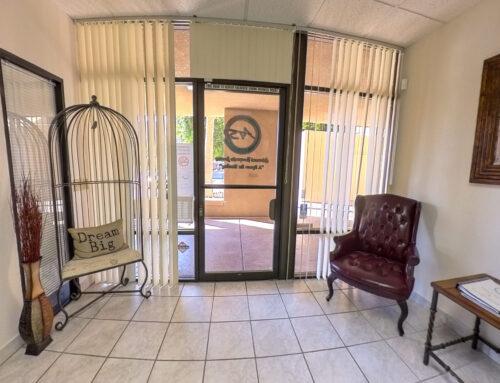Addiction is often called a “family disease” because its impact extends far beyond the individual struggling with substance abuse. At Advanced Therapeutic Services (ATS), we recognize that family support in addiction recovery is one of the most powerful tools for long-term success. When families actively participate in the healing process, recovery outcomes improve significantly.
This comprehensive guide explores why family involvement matters, how to effectively support a loved one in recovery, and how ATS’s family-focused addiction treatment programs can help rebuild trust, communication, and healthy relationships.
Why Family Support is Essential in Addiction Recovery
Studies show that individuals with strong family support systems are more likely to stay committed to treatment and maintain long-term sobriety. Here’s why family plays such a crucial role:
1. Provides Emotional Stability & Motivation
Recovery is an emotionally challenging journey. When family members offer unconditional love and encouragement, it helps individuals stay motivated, even during difficult moments.
2. Encourages Accountability & Reduces Relapse Risk
Family members can help their loved one stay on track by:
- Supporting adherence to treatment plans
- Recognizing early warning signs of relapse
- Encouraging healthy routines
3. Promotes Healing for the Entire Family
Addiction often damages trust and communication within families. Family therapy and recovery education help everyone heal, rebuild relationships, and establish healthier dynamics.
How to Support a Loved One in Addiction Recovery
Supporting someone in recovery requires patience, education, and healthy boundaries. Here are five key strategies to help your loved one while protecting your own well-being:
1. Educate Yourself About Addiction & Recovery
- Understand addiction as a disease, not a moral failing.
- Learn about withdrawal symptoms, triggers, and relapse prevention.
- Attend family education programs at ATS to gain insights into the recovery process.
2. Encourage Professional Treatment (Without Enabling)
- Approach conversations with compassion, not judgment.
- Research evidence-based treatment options like those offered at ATS.
- Avoid financial support that could enable substance use.
3. Practice Healthy Communication
- Use “I” statements (e.g., “I’m worried about your health” instead of “You’re destroying your life”).
- Listen without interrupting or criticizing.
- Avoid blame, shame, or guilt-tripping, which can increase relapse risk.
4. Set & Maintain Clear Boundaries
- Establish firm but loving limits (e.g., “I won’t give you money, but I’ll drive you to therapy”).
- Avoid rescuing them from consequences (e.g., calling in sick for them).
- Prioritize your own mental health—you can’t pour from an empty cup.
5. Seek Support for Yourself
- Join family support groups (Al-Anon, Nar-Anon, or ATS’s family therapy sessions).
- Consider individual therapy to process your emotions.
- Learn self-care strategies to prevent burnout.
How ATS Integrates Family into the Recovery Process
At Advanced Therapeutic Services (ATS), we believe family involvement is a cornerstone of successful recovery. Our family-focused addiction treatment includes:
✔ Family Therapy Sessions
- Guided by licensed therapists, these sessions help:
- Repair broken trust
- Improve communication
- Address codependency or enabling behaviors
✔ Family Education Workshops
- Learn about:
- The science of addiction
- How to recognize relapse signs
- Healthy ways to support recovery
✔ Multi-Family Group Support
- Connect with other families navigating similar challenges.
- Share experiences and coping strategies in a safe, supportive environment.
✔ Aftercare Planning for Families
- We provide ongoing resources to help families maintain progress post-treatment.
Rebuilding Trust & Strengthening Relationships After Addiction
Addiction often leaves families feeling betrayed, hurt, and exhausted. Recovery is not just about stopping substance use—it’s about rebuilding relationships. Here’s how ATS helps:
- Restoring Open Communication – Families learn to express feelings constructively.
- Developing Healthy Boundaries – Prevents future codependency issues.
- Creating a Relapse Prevention Plan – Families work together to identify and manage triggers.
Take the Next Step: Support Your Loved One with ATS
If someone you love is struggling with addiction, you don’t have to navigate this journey alone. At Advanced Therapeutic Services (ATS), we provide comprehensive, family-inclusive treatment that fosters healing for everyone involved.
Recovery is a team effort—let us help your family heal together.
📞 Contact ATS today to learn more about our family therapy programs and how we can support your loved one’s journey to lasting sobriety.






